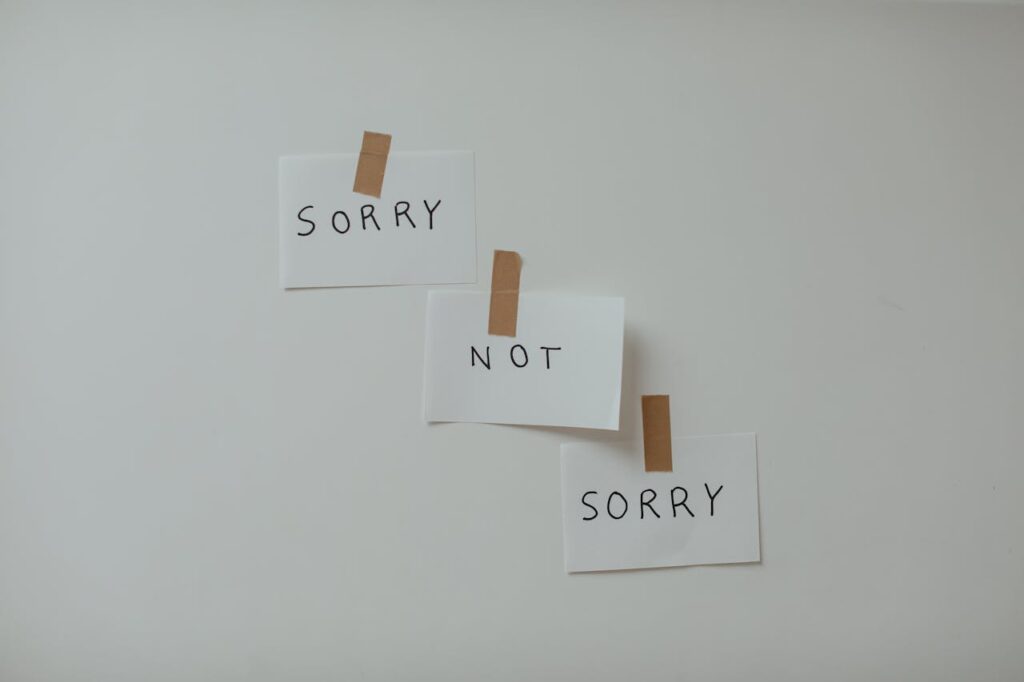Family relationships can be tricky, and sometimes we hurt our family without meaning to. Being aware of how we act is important for keeping good relationships with people we love. Bad habits can grow slowly and start to feel normal over time. Noticing these patterns in ourselves takes honest thinking and wanting to change. Understanding these warning signs can help make family relationships better and help us grow as people. Nobody wants to be the toxic family member, but recognizing these behaviors early can prevent lasting damage. The following clues might show that your behavior is hurting your family relationships, even if you mean well.
You Always Think You’re the Victim in Family Fights

When your family argues, you always think you’re the one being hurt, no matter what happened. You can’t see how you helped cause the problem and only focus on how others hurt you. This victim thinking stops you from taking blame for what you did wrong. You might say things like “everyone hates me” or “nobody gets me.” This makes it hard for family members to talk about real problems with your behavior because all talks become about how hurt you feel instead of fixing the real issues.
Family Members Don’t Tell You Personal Things

Your relatives have started keeping secrets about their lives, good news or problems. They tell other family members about important things instead of including you. When they do share something, they seem nervous or do not give many details. You might learn about big events from other people or on social media instead of hearing them directly. This usually happens when people have been judged, criticized or had their secrets shared before. They protect themselves by not telling you personal things anymore, often because they fear being part of a toxic family dynamic.
You Use Guilt or Tricks to Get What You Want

You often use emotional tricks to make family members do what you want. This might include saying things like “after all I’ve done for you” or “if you loved me, you would do this.” You might stop being nice, ignore them, or threaten to punish them when family members don’t do what you want. These tricks might feel normal to you because they often work right away. Psychology shows that they hurt trust and make people angry over time. Family members might start avoiding you or only do things because they’re scared, not because they want to make you happy.
You Ignore or Put Down Others’ Feelings

When family members share their emotions or tell you how they feel, you tend to make their feelings seem small or change the topic back to yourself. You might say things like “you’re being too sensitive” or “that’s not important.” You have trouble understanding others’ feelings, especially when they don’t match what you think. This behavior makes family members feel like nobody listens to them. Over time, they may stop sharing their thoughts and feelings with you completely. When you can’t understand different viewpoints, it creates distance and stops meaningful connections from happening.
You Keep Bringing Up Old Mistakes

You have trouble forgetting about fights or mistakes that family members made before. During new arguments, you often talk about old fights or past wrongs to prove your point. This stops healing because it keeps opening old wounds. Family members may feel like they can never make up for their mistakes or move on. You might think you’re trying to stop the same problems from happening again. But constantly talking about the past creates a mean environment where people feel judged and unable to grow or change. This pattern is a clear sign of becoming the toxic family member who prevents healing and growth.
You Turn Small Problems Into Big Fights

Small disagreements or everyday frustrations quickly become huge arguments when you’re involved. You have trouble letting minor issues go and instead make them into big problems. Your reactions to normal stress often seem too big for what actually happened. You might yell, bring up other problems, or get other family members involved in fights that could be solved privately. This creates stress where family members feel like they have to be very careful around you. Your habit of making conflicts bigger makes others not want to talk to you about real concerns.
You Can’t Say Sorry the Right Way

When you do apologize, your apologies often come with excuses or blame for others. You might say things like “I’m sorry you feel that way” or “I’m sorry, but you did this first.” You have trouble taking full blame for your actions without making excuses. Real sadness and promises to change are usually missing from your apologies. Mental health studies show that this stops real healing in family relationships. Family members learn not to expect real responsibility from you, which breaks trust and makes them less likely to talk about problems or believe you can change. Refusing to give genuine apologies is a major trait of the toxic family member.
You Compare Family Members in Mean Ways

You often make unfair comparisons between siblings, cousins, or other relatives, pointing out one person’s problems by comparing them to another’s good points. These comparisons often start with phrases like “why can’t you be more like” or “your sister would never do that.” This creates competition and anger among family members while hurting their confidence. You might think you’re helping them improve, but this usually backfires by creating jealousy and worry. Family members may start to dislike both you and their relatives whom you praise, ultimately hurting multiple relationships and creating lasting problems.
You Always Cross Lines Others Have Set

Family members have told you clear limits about topics, behaviors, or interactions, but you regularly ignore or push against these limits. You might think you know what’s best for them or that their limits are unfair. You keep bringing up subjects they’ve asked you to avoid or show up without being invited, despite requests for space. This line-crossing behavior shows a lack of respect for others’ independence and emotional needs. Over time, family members may take stronger steps to protect themselves, such as spending less time with you or stopping communication completely.
You Think Everyone Else Is Wrong

You strongly believe that all family fights and relationship problems come from other people’s flaws, not your own behavior. When multiple family members say similar things about your actions, you dismiss their thoughts as ganging up on you or being unfair. You struggle to think that you might need to change certain behaviors. This thinking stops personal growth and relationship repair because it removes the chance for self-thinking and taking responsibility. Your resistance to feedback and unwillingness to consider other viewpoints create a cycle where problems continue and relationships keep getting worse over time. This mindset is perhaps the strongest indicator of being a toxic family member.
Disclaimer: This article was created with AI assistance and edited by a human for accuracy and clarity.

